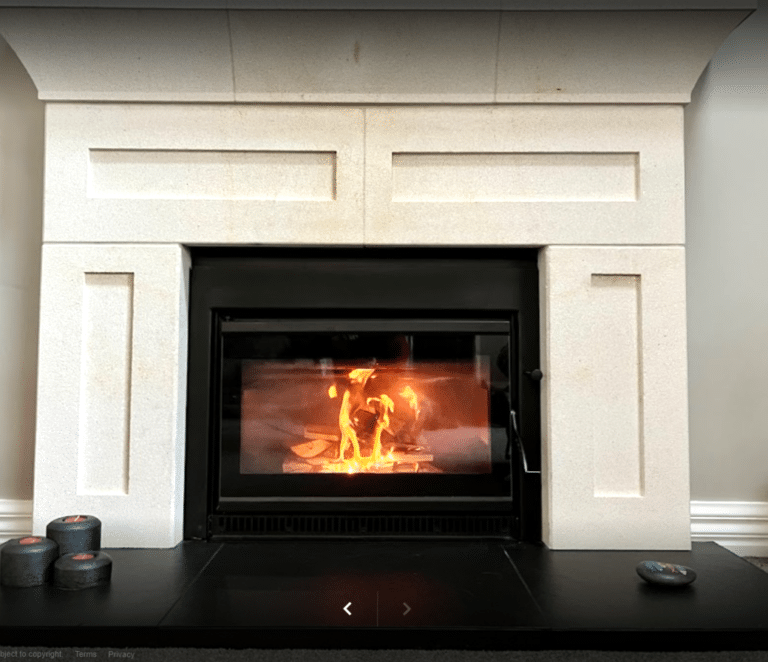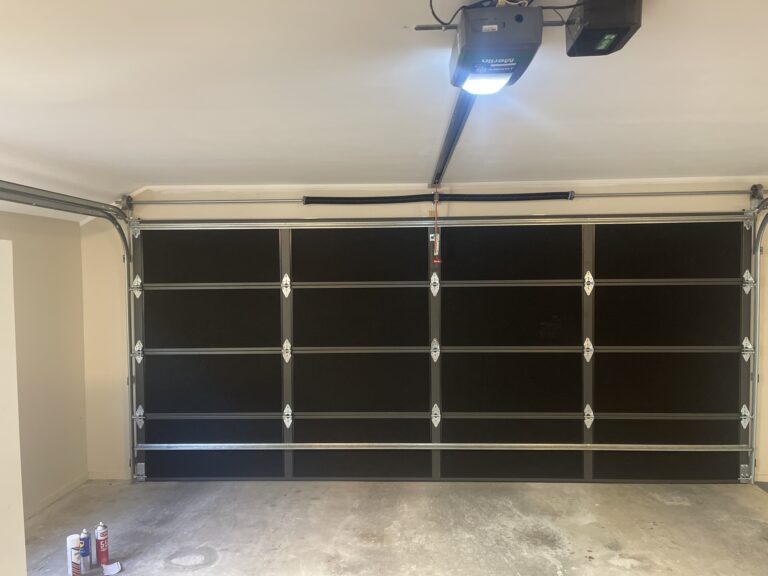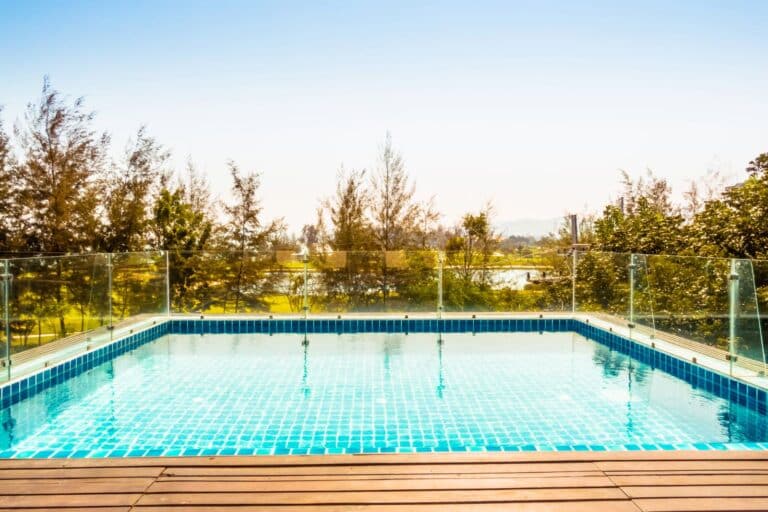It’s a sunny afternoon in Christchurch, and the children are splashing around in the pool while you relax with a cold drink, enjoying the view of your backyard. The pool fencing surrounding the area has always been a part of the background, something you don’t think much about. But as your neighbour drops by for a chat, she leans in and quietly says, “Did you know one of your fence panels is a bit wobbly?”
You hadn’t noticed before, but now that it’s pointed out, it’s hard to ignore. Upon closer inspection, you see a few rust spots here and there, a gate latch that doesn’t quite line up, and a section of wood that looks like it’s seen better days. Suddenly, the sleek, safe pool area you’re used to doesn’t seem so pristine or secure anymore.
This little revelation brings home the importance of regularly maintaining your pool fencing in Christchurch. It’s not just about keeping things looking sharp, it’s about safety and ensuring that your backyard remains a welcoming space for family and guests. A quick check-up every now and then can save you from a lot of trouble down the road.
Why Pool Fence Maintenance Matters
Safety First
A well-maintained pool fence is vital for ensuring the safety of everyone around your pool. Regular upkeep helps to prevent accidents by keeping the fence secure and functional. For example, gate latches tend to become faulty over time and fail to close properly. This minor issue could become a significant hazard, particularly if you have young children or pets.
Regular maintenance, like checking and repairing any faults, ensures that your pool fence continues to perform its primary function of keeping your loved ones safe.
Aesthetic Appeal
A clean and well-kept pool fence greatly enhances the overall look of your outdoor space. Your pool area is the highlight of summer gatherings, but a rusty, worn-out fence detracts from the beauty of your backyard. After a thorough cleaning and a fresh coat of paint or minor repairs, the fence looks brand new, and the entire area feels rejuvenated.
This before-and-after transformation not only boosts the visual appeal but also makes your outdoor space more inviting and enjoyable for you and your guests.
Property Value
Maintaining your pool fence can also positively impact your property’s value. A neglected fence can be a red flag to potential buyers, suggesting that other areas of the property might be in disrepair. Conversely, a well-maintained fence signals that you take pride in your home and care for every aspect of it.
When selling a house, a potential buyer is likely to take note of a rusty, unstable fence. He or she might worry about the cost of repairs and question the overall condition of the property. Keeping your pool fence in excellent shape can help you present your home in its best light, potentially increasing its market value and appeal.
Regular Inspections
What to Look For
Regular inspections of your pool fence are important for catching potential issues before they escalate. During these checks, here are a few key things to examine.
- Rust: Look for any signs of rust, especially on metal fences. Rust can weaken the structure and lead to more severe damage if left untreated. Check for discolouration or flaky patches.
- Loose Panels: Ensure that all panels are securely fastened. A loose panel can create gaps that may compromise safety or invite unwanted access to the pool area.
- Damaged Locks: Verify that all locks and latches are functioning correctly. A faulty lock can be a significant safety risk, so make sure they engage and release smoothly.
How Often Is An Inspection Needed?
You should aim to inspect it every few months. A regular schedule helps ensure that minor issues are addressed promptly before they turn into major headaches. A quick check in the spring and again in the autumn can be a good routine to follow. This frequency also helps you stay ahead of wear and tear caused by Christchurch’s changing weather conditions.
Here’s a case study that highlights the importance of regular pool fence maintenance. During a routine inspection, Joe from Riccarton spotted a small patch of rust forming on one of the metal fence panels. It was a subtle sign, something that could easily be overlooked. Instead of ignoring it, the rust was treated immediately, and a protective coating was applied.
This early intervention prevented the rust from spreading and avoided costly repairs later. Regular inspections like the one Joe conducted help keep the pool area safe, well-maintained, and looking its best.
Cleaning and Upkeep
Keeping your pool fence clean helps maintain its longevity. Here’s how to tackle the cleaning for different types of pool fences.
Glass Fences
Use a mild glass cleaner or a solution of water and vinegar. Spray it onto the glass and wipe with a soft, lint-free cloth. Avoid abrasive sponges that might scratch the surface. For tough spots, a non-abrasive glass cleaner and a bit of elbow grease will do wonders.
Aluminium Fences
For aluminium fences, mix warm water with a mild detergent and use a soft brush or cloth to clean. Rinse thoroughly with water to remove any soap residue. Avoid harsh chemicals or abrasive materials that can damage the finish.
Wooden Fences
Wooden fences require a bit more care. Use a wood-safe cleaner and a gentle brush to scrub away any grime. Rinse with water and consider applying a protective wood sealant to keep the wood in good shape.
Regular cleaning and maintenance of your pool fence extends its life, ensuring it continues to provide safety and style for your outdoor space. By dedicating a little time to care for your fence, you can keep it looking fresh, functional, and ready to withstand the elements year-round. After all, a well-maintained fence makes your pool area more inviting and enjoyable for everyone.
Weather-Proofing Your Pool Fence
Christchurch’s weather can be unpredictable, with its wet winters and dry summers posing challenges for outdoor structures like pool fences. Weather-proofing your fence ensures it withstands the elements year-round, prolonging its lifespan and reducing the need for repairs.
Protective Coatings
Applying a weather-resistant coating to your fence can prevent damage from moisture, UV rays, and temperature fluctuations. For metal fences, a rust-inhibiting paint or powder coating helps protect against corrosion. Wooden fences benefit from a water-repellent sealant, which keeps the wood from warping or rotting. Reapplying these treatments every few years ensures continued protection.
Wind Resistance
Christchurch’s strong winds can sometimes damage or loosen fence panels. Regularly check that all panels are securely fastened, especially after storms. For fences in particularly exposed areas, consider reinforcing them with additional fasteners or installing windbreaks like hedges to reduce strain on the structure.
Drainage
If water pools around the base of your fence, it can lead to long-term damage, especially for wooden and metal fences. Ensure the area around your fence has proper drainage to prevent water build-up. Installing gravel or small trenches can help direct water away from the fence’s foundation.
Weatherproofing not only ensures your pool fence stays secure and functional but also maintains its aesthetic appeal, no matter the season.
Repairs and Replacements
DIY vs. Professional Help
Deciding between DIY and professional help for repairs depends on the complexity of the issue and your comfort level with tools. For minor repairs, such as tightening screws or replacing a small section of fencing, DIY can be a cost-effective solution. However, for more complex problems like fixing a large rust patch, replacing entire panels, or addressing structural issues, using a professional is the best choice.
Here’s an example that illustrates the importance of professional expertise. A damaged gate latch was temporarily repaired by the homeowner, but the fix didn’t last, leading to ongoing security concerns. When a professional was called in, the latch was properly repaired, aligned, and secured, providing a durable and reliable solution. This demonstrates how professional repairs can prevent recurring problems and ensure the job is done thoroughly and effectively.
Common Repairs
Here are some typical repairs you might encounter with pool fences:
Rust Removal
For metal fences, rust can be a common problem. Use a wire brush to remove the rust, followed by sanding and applying a rust-inhibiting primer and paint. This will help prevent further rusting.
Loose Panels
Over time, panels can become loose due to weather conditions or wear. Tighten any loose screws or bolts and replace any broken fasteners to ensure the fence remains secure.
Gate Repairs
Gates can often suffer from misalignment or faulty hinges. Check the alignment regularly, and if needed, adjust the hinges, or replace them to ensure smooth operation and secure closure.
Cracked or Splintered Wood
For wooden fences, look out for cracks or splinters. Sand down any rough spots and apply wood filler for small cracks. For larger damage, you might need to replace the affected section of wood.
Replacement Tips
If a section of your pool fence needs replacing, consider the following tips.
Material Selection
Choose materials that match the existing fence in both style and durability. Common materials include glass, aluminium, and wood. Ensure the new material complements the current design and withstands local weather conditions.
Fit and Installation
Measure the replacement section carefully to ensure a perfect fit. It’s critical that the new section aligns properly with the existing fence to maintain both safety and aesthetics. If you’re unsure about the installation, seeking professional help can ensure that the replacement is installed correctly and securely.
Keeping Your Family Safe
Childproofing
Ensuring your pool fence is childproof is a top priority for keeping little ones safe. Here are a few essential tips.
Height Check
Make sure the fence is high enough that children cannot climb over. The standard height for pool fences is usually around 1.2 to 1.8 metres, but always check your local regulations for specific requirements.
Gate Locks
The gates should have self-closing mechanisms and latches that are out of reach of young children. Double-check that the latch is secure and that it cannot be easily opened by little hands. A lock that requires a key or a complex mechanism is often a good choice.
No Gaps
Inspect the fence for any gaps or spaces where children might squeeze through. All gaps should be less than 100mm wide to prevent accidental entry. Ensure that the bottom of the fence is firmly attached to the ground to avoid any gaps that might appear over time.
Safety Checks
Regular safety checks are crucial for maintaining a secure pool area. Here’s what to look out for.
Routine Inspections
Conduct frequent inspections to ensure that all components of your pool fence are functioning correctly. Check for any wear and tear, rust, or loose parts.
Regulatory Compliance
Stay updated with local regulations and standards for pool fences. Regulations can change, and it’s important to ensure your fence meets current safety standards. If you’re unsure, consult with a local pool safety expert or authority to confirm compliance.
Keeping Your Pool Fence in Prime Condition
Maintaining your pool fence is key to enhance your pool fence’s safety, aesthetics, and overall value. Cleaning and upkeep are essential to preserve the fence’s appearance and longevity, with specific methods for glass, aluminium, and wooden fences, and seasonal care to adapt to changing weather.
It is also good to be aware of when you can handle repairs yourself and when to seek professional help. Proper repairs and timely replacements, with attention to material choice and fit, ensure your fence remains functional and secure.
Ensure your pool fence stands the test of time—protect your loved ones, preserve your investment, and keep your pool area looking its absolute best.




